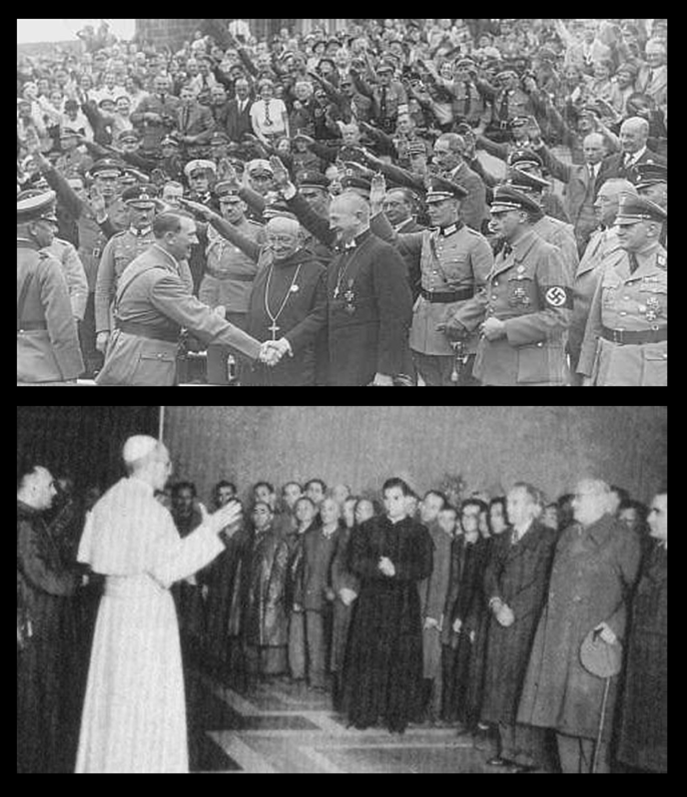Module 3: Religion & Culture
3. Christian Responses to the Holocaust

This module focuses on the religious dimensions of the Holocaust, particularly how religious leaders, communities and individuals responded to the rise of National Socialism and the ever-more evident fact of the persecution of Jews and their mass murder.
The millennia-old traditions of Christian anti-Judaism and its clear lineage in Nazi antisemitism occasion different kinds of questions and discussion than our exploration of Jewish or Muslim responses. As Holocaust historians have consistently argued, Christian anti-Judaism by itself is insufficient to explain the horrors of the Holocaust, but it is also clear that without Christian anti-Judaism laying a fertile foundation for hatred of the Jews, the Holocaust could not have happened.
Key questions will include: Were the Nazis anti-Christian? How did they use Christianity for their own purposes? How did the National Socialists and their supporters attempt to nazify and aryanize the churches? Did Christian leadership support or oppose the National Socialists? Why? How significant was Jewish persecution in those responses? How did lay Christians respond?
Lecture: Christian Responses
Dr. Deidre Butler’s mini-lecture on Christian Responses focuses on one part of the puzzle, the question of Christian leadership, particularly the leadership of the two largest denominations in Germany: Protestant and Catholic churches. Beginning with a brief overview of Christian anti-Judaism to consider how the Nazis strategically used Christian belief, practice and identity to rally support for National Socialism and its persecution of the Jews, but also undermined the churches in ways that threatened their theological autonomy and authority, if not their very existence. The churches, especially the Catholic Church and Protestant churches, generally supported the Nazis’ rise to power and were largely silent on the question Nazi persecution of Jews. Two notable exceptions, Bernard Lichtenberg and Dietrich Bonhoeffer, highlight examples of Christian leadership opposing the Nazi regime and explicitly advocating on behalf of Jewish victims.

